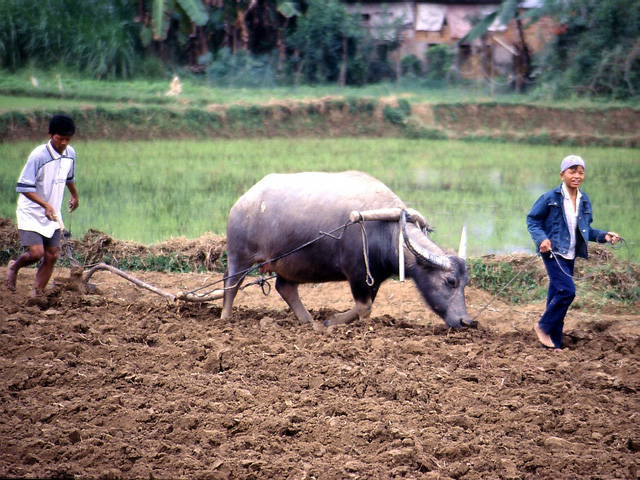|
Lifting
farmland limits is key to agriculture development: expert
In 2016, when
agriculture suffered from drought, low production and low yield, which led to
a negative growth rate, the lowest since 2011, experts said that Vietnam’s
agriculture needed critical reform.
 At a working session earlier this year in the northern province of Ha Nam, Prime Minister Nguyen Xuan Phuc said that Vietnam needs to shift from ‘untied agriculture’ into ‘tectonic agriculture’. Government officials and experts have recently mentioned the farmland limit policy as a barrier to large-scale agriculture production which hinders development. They have called to lift the farmland limit to push up land accumulation and pave the way for large-scale production. Expansion of land limits and accumulation of land for large-scale production are expected to be the foundation for the branding of farm produce.
Pham Chi
Lan, an economist, understands the value of the new policy. However, she said
the policy needs to be implemented so that land won’t fall into the hands of
a few wealthy landowners.
ADB (Asian Development Bank) commented that it is agriculture which is the key to development of Vietnam, not industry or trendy phrases such as ‘4.0 industrial revolution’. Sixty five percent of the population live in rural areas, directly or indirectly living on agriculture. And, 47 percent of the labor force works in agriculture. So, the new farmland policy, once applied, will play an important role for the whole economy, not only for agriculture. Lan believes that innovation would create new opportunities for Vietnam’s agriculture. First, farmers will have more land for cultivation because the old principle ‘every farmer has land to cultivate’ has been removed. “Many farmers don’t cultivate fields any longer. Why do we still have to allocate land to them just because of the principle of allocating land to everyone?” she asked. “In the past, there were too many farmers, while there was limited land fund. But the number of farmers has decreased, so the farmers who still devote themselves to rice fields have opportunities to use more land,” she said. Second, the land accumulation will organize large-scale production, empowered by mechanization and high technology. However, Lan pointed out that the new policy does not simply mean giving more land to farmers, and that the state needs to do more than this. “The state needs to educate farmers about the rights and benefits they have and the responsibilities they have. It is also necessary to re-organize agricultural production,” she said.
Thanh Lich, VNN
|
Thứ Năm, 27 tháng 4, 2017
Đăng ký:
Đăng Nhận xét (Atom)
Không có nhận xét nào:
Đăng nhận xét